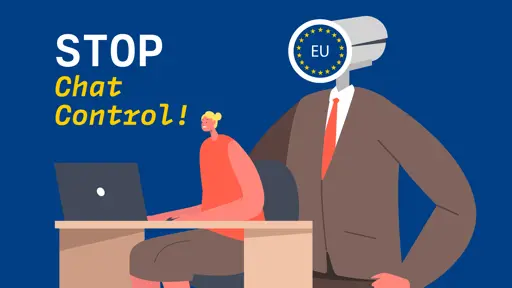Chat Control is back & we've got only a few weeks to stop the EU CSAM scanning plans.
Chat Control is back & we've got only a few weeks to stop the EU CSAM scanning plans.

Chat Control is back & we've got only a few weeks to stop the EU CSAM scanning plans. | Tuta

The Dastardly Danes and Ursula are at it again.
A more important question is, why they can endlessly propose laws that violate existing laws? They should lose the job, if they proposse two violations of laws or one violation of human rights, imo.
What with all the power but none of the responsibilities.
Which human right and laws?
There's the EU-wide ePrivacy directive, explicitly stating (Art. 5):
There's also other EU-wide stuff, like:
Charter of Fundamental Rights of the European Union (Art. 7):
European Convention on Human Rights (Art. 6):
Then there's the UN-wide Universal Declaration on Human Rights (Art. 12):
And as if that wasn't enough, most member states have confidentiality of communications codified in their constitutions. They are:
Belgium (Art. 29):
Bulgaria (Art. 34):
Croatia (Art. 36)*:
Cyprus (Art 17)*:
Czechia (Art. 13)*:
Denmark (Art. 72)*:
Estonia (Art. 43)*:
Finland (Sec. 10)*:
Germany (Art. 10)*:
Greece (Art. 19)*:
Hungary (Art. VI):
Italy (Art. 15)*:
Latvia (Art. 96):
Lithuania (Art. 22):
Malta (Art. 41):
Poland (Art. 49):
Portugal (Art. 34):
The Netherlands (Art. 13)*:
Austria, Luxembourg and France are outliers in that I didn't find anything in their constitutions during my brief little search.
European Convention on Human Rights Article 8: Right to Respect for Private Life
Everyone has the right to respect for their private and family life, home and correspondence.
UN Convention on the Rights of the Child, Article 16 (English)
"No child shall be subjected to arbitrary or unlawful interference with his or her privacy, family, home or correspondence, nor to unlawful attacks on his or her honour and reputation."
Several EU countries have constitutional prohibitions of mass surveillance of private communication.
But why the downvotes? That's an important point the article didn't answer either.